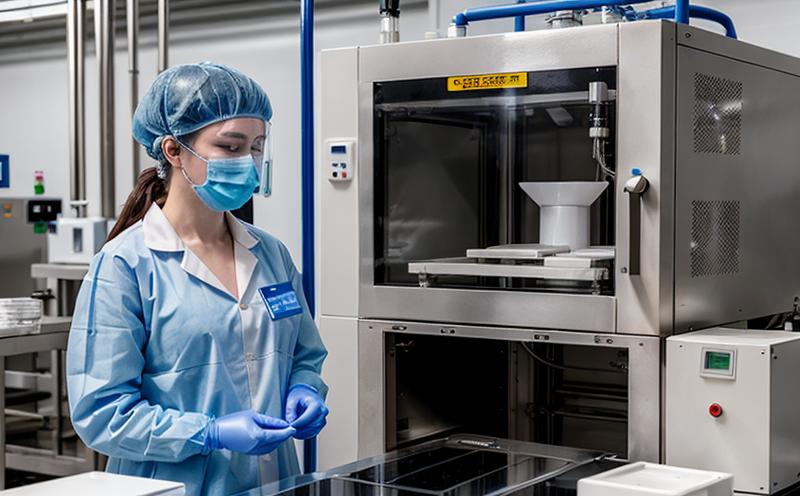GMP Contact Plate Surface Testing
In the pharmaceutical industry, compliance with Good Manufacturing Practice (GMP) is non-negotiable. Ensuring that contact plates used in manufacturing processes meet stringent standards not only guarantees product quality but also ensures safety and reliability throughout the production cycle. GMP contact plate surface testing plays a crucial role in this regard by validating that these surfaces are free from contamination, imperfections, or defects.
The contact plates serve as critical components in various pharmaceutical machinery such as tablet presses, capsule fillers, and packaging machines. Any imperfection on their surface can lead to issues like sticking tablets, poor product quality, or even safety hazards during production. This testing ensures that the surfaces are smooth, free of rough edges, and properly aligned with ISO 14644-1 specifications for cleanroom environments.
The process involves several key steps: first, the contact plate is cleaned according to predefined protocols ensuring no residues remain. Then, it undergoes visual inspection using high-resolution cameras or microscopes to detect any visible defects such as scratches, pits, or cracks. Automated testing equipment can also be used to measure surface roughness and flatness. The final step involves a series of chemical tests to ensure the plate's material is suitable for pharmaceutical use.
Given the critical role these plates play in ensuring product safety, it’s imperative that they are tested regularly and thoroughly. This not only upholds GMP standards but also contributes significantly to reducing the risk of contamination and ensuring batch consistency. The results from this testing are documented meticulously and form part of the overall quality assurance (QA) records for the production facility.
Given the high stakes involved, it’s essential that such tests are conducted by laboratories with deep expertise in pharmaceutical manufacturing. Our team at [Lab Name] uses state-of-the-art equipment and follows internationally recognized standards to ensure accuracy and reliability. By partnering with us, you can be confident that your contact plates meet the highest GMP compliance standards.
Benefits
- Avoids Contamination Risks: Ensures clean surfaces that do not contribute to product contamination.
- Improves Product Quality: Eliminates defects like scratches and cracks that can impact tablet or capsule integrity.
- Enhances Safety: Reduces the risk of hazards during production by ensuring safe contact surfaces.
- Facilitates Compliance: Meets stringent GMP requirements, helping facilities avoid non-compliance penalties.
- Boosts Efficiency: Minimizes downtime and rework associated with defective plates.
- Promotes Consistency: Ensures that every batch produced on the equipment is of consistent quality.
Quality and Reliability Assurance
The testing process for GMP contact plate surfaces is designed to meet the highest standards, ensuring reliability and consistency in pharmaceutical manufacturing. The use of advanced technology and adherence to international standards such as ISO 14644-1 guarantees that our tests are both accurate and reproducible.
Our laboratories employ a multi-step approach to ensure thorough testing. Initially, the contact plates undergo rigorous cleaning procedures to remove any potential contaminants or residues. This step is crucial in maintaining the integrity of the test results. Following this, detailed visual inspections using high-resolution cameras and microscopes are conducted to identify any visible defects such as scratches, pits, or cracks.
For a more comprehensive analysis, automated testing equipment measures surface roughness and flatness. These metrics are critical for ensuring that the contact plates meet the precise tolerances required by GMP standards. In addition to these physical inspections, chemical tests are conducted to verify that the materials used in the construction of the plates are suitable for pharmaceutical use.
The results from this testing process are meticulously documented and form an integral part of our quality assurance (QA) records. These records provide a comprehensive history of each contact plate’s performance and compliance status, which is invaluable for ongoing maintenance and future reference. By adhering to these stringent protocols, we ensure that the contact plates used in your manufacturing processes are not only reliable but also safe and compliant with GMP regulations.





